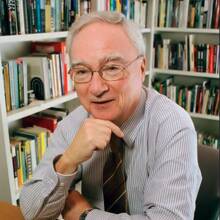She Cast a Spell
Great actors disappear into their roles. Sarah Bernhardt seemed to reverse the process, at least according to George Bernard Shaw, who judged her acting “childishly egotistical.” In his opinion, she subsumed her characters and made them into reproductions of herself. Audiences related to Bernhardt, not Cleopatra or Camille or Athalie. So great was this hypnotic force that she conquered audiences around the world, even though she performed only in French. Her captivated fans, at least outside France, could dispense with the poetry of the lines or the dramatic action. They came to see Bernhardt and willingly, eagerly fell under the spell of her personality. Without question, she was the greatest actor of her generation throughout a career that lasted over half a century.
In his brief new biography, Robert Gottlieb tries to grapple with the mysterious, driven nature of the woman as well as the artist. A veteran editor at Knopf, Atlantic Monthly and The New Yorker, Gottlieb has dealt with driven genius before, most notably in his Balanchine: The Ballet Maker. Contributing the first in a projected 50-volume series entitled “Jewish Lives,” a collaborative venture of Yale University Press and the Leon D. Black Foundation, Gottlieb traces much of Bernhardt’s creative energy to her heritage. Born to an unmarried Jewish mother and an unidentified father in 1844, she received the name Bernhardt from her maternal grandfather, Maurice Bernard, an oculist from Amsterdam. Rejected and unloved by her mother, Sarah was placed in a convent school near Versailles, where she stayed for six years. At the age of 12, she was baptized, at the insistence of a stepfather. Neither Jewish identity nor Catholic faith did much to tame her appetite for life.
But all this early history is very confused, as Gottlieb points out through a series of wry asides that warn the reader not to believe all the events he recounts. Bernhardt was generous with biographers, but unfortunately, the unembellished truth bored her. Fantasies of the imagined self proved infinitely more interesting. Did she in fact as a child throw herself under a carriage to protest the departure of a beloved aunt, or did she fall out a window waving goodbye to her? The truth matters little. The theatricality of either version of the story is delicious, even if neither is true. Bernhardt considered her life a dramatic text that she could edit or a performance she could reinterpret as mood and audience dictated. A generous gallery of portraits shows that she could seduce photographers as readily as biographers.
As Bernhardt grows older the story grows a bit clearer. Her mother had supported her family by ingratiating herself with generous Parisian gentlemen. As the years inevitably put this source of income in jeopardy, she trained her daughters to continue the arrangements. Sarah rebelled, not because of moral reservation—her legendary exploits demonstrate amply that few such scruples troubled her at any period in her life—but rather because she refused to be dependent on anyone, her mother or her patrons. For a beautiful, slender girl with a talent for reciting poetry, acting seemed a natural way to gain the attention her mother had denied her. A major problem remained: she was not very good at it. A short stay at the Comédie Française brought no memorable successes. A notably bad review drove her to take poison. So she says.
By the age of 20, Bernhardt had left a second company and given birth to a son, whose father remains a matter of speculation and for whom she never offered apology. Determined to succeed, Bernhardt joined the Odéon, where her talent blossomed. One triumph followed another, and she traveled in the highest circles of French artistic life with the likes of Hugo, Dumas, Rostand and Zola. She did the great roles of the classic repertoire and the sentimental heroines of the 19th-century popular stage. She began her own theater company, overseeing its productions in detail and taking it on exhausting international tours. She despised the modern naturalism of Chekhov and Ibsen, however, a failure of vision that eventually made her declamatory style seem intolerably old-fashioned. She appeared in silent movies, a medium in which 19th-century gesticulation still flourished. She played the parts of much younger characters, but at some point the illusion of youth evanesced. No matter. Audiences continued to pack the balconies to see one of her mad tirades or death scenes. She performed demanding roles into her 70s, even after a leg had been amputated, supposedly because of damage done to it in childhood by falling from a window. Or was it from hurling herself in front of a carriage?
Clearly, her Jewish background never hindered her success. If anything, the anti-Semitic slurs she endured from rivals and hostile critics may even have hardened her resolve to face the world on her own terms, regardless of what people said about her. Attacks arise from jealousy, and jealousy is but the dark face of admiration. If some saw “the Jewess” as devoid of morality, as rapacious in gathering wealth, as deliberately defiant of the social norms of decent people, and if they attributed all of these characteristics to some stereotypical notion of “Jewishness,” so be it. One role she could not play was that of the hypocrite. Her outlandish private life matched her out-sized acting style, and she reveled in both. She was endlessly fascinating. She was Sarah Bernhardt. What more is there to say?
This article also appeared in print, under the headline “She Cast a Spell,” in the October 4, 2010, issue.








